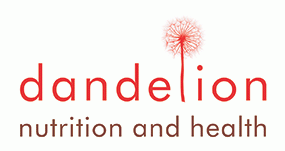So many diseases have inflammation at the root of them. Inflammation is a normal and healthy process that is part of our immune system to fight off illness, but when the body becomes chronically inflamed this can contribute to various conditions and disease states.
The foods you put in your body can have a huge impact on how you feel. You’ve probably heard of the Mediterranean diet – this is a great example of a diet which has been shown to lower inflammatory markers in the system. The Mediterranean Diet is recognised by the World Health Organization as a healthy and sustainable dietary pattern, which means that, unlike some other diets, it’s not a difficult one to follow and stick to.
So what should you be eating?
Vegetables
All vegetables contain antioxidants which support your immune system to fight inflammation. Try to include a variety of colours, and make sure you include green leafy vegetables like spinach, kale and lettuce, and cruciferous vegetables like broccoli, cabbage, sprouts and cauliflower which support the liver.
Tip 1: Every time you make a meal think about how you can add more vegetables to it.
Tip 2: If you struggle to eat enough vegetables, print this chart from Dr Rangan Chatterjee’s website and stick it on your fridge, then try to eat one vegetable from each of the colours every day.
Fruit
The fruits that are particularly rich in antioxidants are berries, cherries and red grapes. Frozen fruit is just as good as fresh. Avoid fruit juices as they will give you a big sugar hit without the fibre that you get when you eat the whole fruit.
Tip: When it comes to vegetables and fruit, eat organic where possible. The Dirty Dozen and Clean 15 lists tell you which ones it’s particularly important to eat organic and which ones you can get away with eating non-organic.
Healthy Fats
The Mediterranean diet includes good healthy fats, including omega 3 fatty acids which reduce inflammation in the body. Fatty fish are a good source of omega 3s so include salmon, mackerel, anchovies, sardines, tuna steak and herring. Other sources are walnuts and ground flaxseed.
Monounsatured fat is another healthy fat you will want to include. Olive oil is a good source of this type of fat, as well as containing antioxidants to support your immune system, and also a compound called oleocanthal which has been shown to have anti-inflammatory and pain relieving effects similar to Ibuprofen.
Other healthy fats are found in coconut oil, rapeseed oil, avocado, olives, nuts and seeds. Avocados are great because they contain a good amount of fibre, monounsaturated fat and vitamin E which is an antioxidant.
Tip: Use extra virgin olive oil as a salad dressing (add apple cider vinegar and turmeric for a delicious salad dressing with even more health benefits) and use coconut oil for cooking.
Lentils and beans
Legumes (beans, peas and lentils) contain fibre, protein, folic acid and lots of important minerals such as magnesium, iron, zinc and potassium.
Tip: Make a vegetable soup or stew and throw in some peas or beans for a good protein source and extra fibre.
Fibre
Fibre has been shown to lower C reactive protein, an inflammatory marker in the blood. It also keeps your digestive system moving regularly allowing for daily bowel movements, which are really important to avoid toxins being reabsorbed back into the bloodstream. We should be eating around 30g of fibre a day. You can get this from vegetables, fruit, nuts and seeds. If you eat bread, pasta and noodles, switch to a whole grain version.
Tip: Aim for 7 vegetables and 2 fruits per day.
Turmeric, cinnamon and ginger
Turmeric contains curcumin which has been shown to relieve pain, as well as calm the digestive system. Cinnamon and ginger both have anti-inflammatory properties, and cinnamon also balances your blood sugar levels leading to more balanced energy levels.
Tip 1: Sprinkle turmeric over roasted vegetables (it’s particularly good on roasted cauliflower!). Sprinkle cinnamon over roasted sweet potato for extra sweetness.
Tip 2: Make a latte by warming almond or oat milk in a saucepan and adding ¼ teaspoon of cinnamon, turmeric and ginger for a soothing anti-inflammatory drink.



